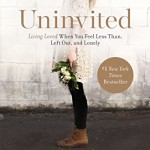In Strange Gods, Elizabeth Scalia went into detail on how we create idols out of our own egos and ideas. In Little Sins Mean a Lot, there’s a whole chapter about the dangers of clinging onto unhealthy narratives. As a writer, I pay a lot of attention to the narrative. Every person has their own version of what they think their lives were like and their perspectives of the people around them.
For the longest time, I had this narrative in my head that I spent a lot of my life alone. In spite of the fact that I had a good family and went to a good school, the story of my life always focused on the times that I was bullied or neglected. I also have a tendency of using this tactic of focusing too much on the negative when it comes to remembering my exes. I think it stems from some kind of self-preservation, a tactic to keep myself safe and remind myself to avoid getting into those situations again.
However, during my recent vacation to New Jersey, I met with a couple of old friends. We reminisced about my childhood, as childhood friends always do. Then one of my friends told me something I never knew. Way back when I was in kindergarten, the seventh and eighth graders were making ants on a log (peanut butter, pretzels, and raisins) when one of them realized that having the peanut butter around could trigger my allergy. Even though I wasn’t even in the same building as them and wasn’t as sensitive to peanuts as other kids, they decided to throw out their snacks, peanut butter and all, just to make sure that I would be safe.
I also learned that my childhood best friend was very protective of me. I knew that she and I were best friends, in spite of us being complete opposites, but I never knew that she protected me as if I was part of her family. Of course, she was the youngest of four sisters so it made sense that she treated me like the little sister she never had. I was loved and cherished even by people I never really knew. The crappy stuff I went through in middle school wasn’t all bad because I still had people to talk to. I was never as alone as I always believed I was.
The narratives we tell others reveal a lot to them about how we see ourselves and how we see other people. It’s basically why I’m trying to remember the good times I had with my exes as well as the bad. While I still joke that my love life is a veritable “comedy of errors,” I don’t want to condemn the people I connected with and paint them as the worst of humanity. It doesn’t mean that I’ll ever want them back in my lives. It’s just part of me learning how to forgive them. I always like to believe that people are inherently good, but at the same time, they also have damage that they haven’t completely healed from. Some people hide this damage behind a mask while others cling to their broken narratives and play the victim. None of these are healthy coping mechanisms.
If we want to start becoming the best versions of ourselves, we need to rewrite the narrative we have for our lives. We are never as alone as we think we are. We are loved so much by people we may not even know. The people in our lives have their own narratives as well. If you have hurt someone or received damage from somebody, I’m not asking you to contact them and try to work things out. Instead, go into prayer with God and ask Him to heal the wounds in your heart. There’s a wonderful prayer Leah Libresco shared with me that honors the Five Wounds of Christ that you can pray here. If you have some emotional ties with someone, I highly recommend praying a novena to Our Lady Undoer of Knots.
As the musical Hamilton often repeats, we have no control who lives, who dies, and who tells our story. We have control over our actions and the stories we write for ourselves, but we are all in need of guidance as to how we can act and perceive things in a good way. Today, I ask you to let God write your story. Hand the narrative over to Him and see what he can do.












